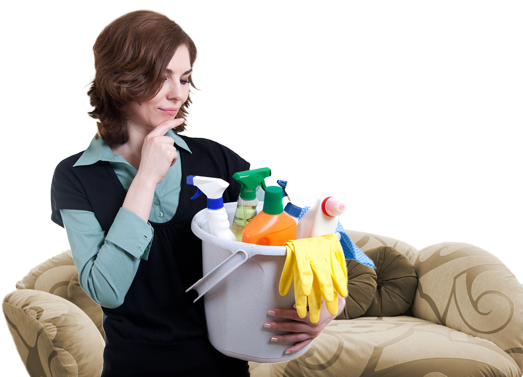Tips to Successfully Combat Damp Smells
Posted on 30/05/2025
Tips to Successfully Combat Damp Smells: A Comprehensive Guide
Damp smells can turn a comfortable home into a less inviting space, impacting your well-being and potentially indicating underlying issues such as mold or poor ventilation. If left unchecked, these unpleasant odors can linger, damage your belongings, and even affect your health. Successfully combatting damp smells requires a combination of immediate remedies and long-term prevention strategies. In this comprehensive guide, we explore actionable tips, expert insights, and practical advice to help you remove and prevent damp odors in any space.
Understanding the Causes of Damp Smells
Before tackling unwanted damp odors, it's vital to understand their root causes. Damp, musty smells are often attributed to:
- Mold and mildew growth
- Poor ventilation
- Water leaks or ingress
- Condensation buildup
- Absorbed moisture in soft furnishings or carpets
By identifying what triggers dampness in your space, you'll be better equipped to successfully combat damp smells and prevent them from coming back.

Immediate Steps to Neutralize Damp Smells
If your house, office, or basement already has a noticeable musty odor, here are quick fixes to address the symptoms while you investigate the source:
1. Increase Air Circulation
Ensure fresh air flows throughout your home. Open windows and doors regularly to let trapped moisture escape and bring in dry, fresh air. For spaces where ventilation is limited, use fans or install air vents.
2. Absorb Excess Moisture
Moisture is the primary culprit behind lingering damp smells. Portable dehumidifiers are an effective solution for quickly reducing humidity levels in any room. Alternatively, moisture-absorbing products such as silica gel sachets, activated charcoal, or moisture-absorbing crystals can also help. Place these in wardrobes, under sinks, or other problem areas.
3. Clean and Disinfect Affected Areas
Regular cleaning is crucial in the fight against musty odors. Scrub down walls, floors, and other surfaces with a mix of water and white vinegar or baking soda--both are excellent natural deodorizers. In cases of visible mold, use a specialized mold removal solution and follow safety precautions.
4. Wash Soft Furnishings Thoroughly
Curtains, carpets, rugs, and upholstered furniture often absorb moisture and hold onto smells. Wash or steam-clean these items to remove deeply entrenched odors. If the smell persists, consider professional cleaning.
5. Replace Air Filters
If you use air conditioning or HVAC, ensure you replace or clean air filters regularly. Clogged filters can trap and circulate musty smells, undermining your efforts to eliminate damp odors.
Long-Term Solutions to Prevent Damp and Musty Smells
Quick fixes can mask the problem, but lasting results come from addressing the root causes of moisture and poor ventilation. Here's how you can prevent damp issues from recurring:
1. Identify and Repair Leaks
Inspect your property for leaks in the roof, walls, plumbing, or basement. Even small leaks can introduce enough moisture to foster mold growth. Repair any issues immediately and monitor problem areas for new signs of water ingress.
2. Improve Property Ventilation
- Install extractor fans in high-moisture areas like kitchens and bathrooms.
- Use trickle vents on windows to maintain a constant airflow.
- Leave internal doors open when possible, especially after baths or showers.
Good airflow is key to preventing humidity buildup that leads to damp, musty smells.
3. Insulate Against Condensation
Condensation forms when warm, moist air meets cold surfaces. Proper insulation in your walls, windows, and doors can significantly reduce condensation risks. Double-glazing windows and applying anti-condensation paint or film in vulnerable areas--such as behind wardrobes or beds--can help.
4. Maintain Gutters and Drains
Clogged gutters and improperly directed drainage can cause water to seep into walls and foundations. Regularly clean gutters and downspouts and ensure they direct water well clear of your property's base.
5. Use Moisture Resistant Materials
When renovating or redecorating, opt for moisture-resistant paints, wallpapers, and flooring. Choosing tiles, vinyl, or specially treated wood can make problem zones less susceptible to moisture buildup and therefore damp smells.
6. Keep Humidity in Check
Monitor your home's humidity with an inexpensive hygrometer. Ideally, keep levels between 40% and 60%. Use dehumidifiers in persistently damp locations and avoid drying clothes indoors where possible, as this can rapidly raise moisture levels.
7. Regular Inspection and Maintenance Routine
Make a habit of checking your home regularly for new signs of moisture damage--especially after heavy rain. Look for water stains, flaking paint, or swollen woodwork. Early detection can save you time, money, and hassle down the line.
Top Natural Remedies for Damp Smells
While commercial air fresheners may temporarily mask unpleasant odors, they don't tackle the cause. Instead, consider these natural remedies to freshen your space while you combat damp smells:
- White vinegar: A natural deodorizer that can be used for cleaning or left in dishes around affected rooms to absorb odors.
- Baking soda: Sprinkle on carpets or upholstery, leave for a few hours, then vacuum up to absorb lingering smells.
- Activated charcoal: Excellent for absorbing toxins and neutralizing smells; ideal for cupboards and wardrobes.
- Essential oils: Add a few drops of eucalyptus, tea tree, or lavender oil to a bowl of water or a diffuser for a fresh, clean scent and added antibacterial properties.
- Coffee grounds: Place used coffee grounds in a bowl to absorb and mask stale odors naturally in kitchens or basements.
Why You Should Never Ignore Damp and Musty Odors
Damp, musty smells are not just a nuisance--they're often an early warning sign of more serious issues, such as mold growth or structural decay. Prolonged exposure to damp environments can lead to:
- Respiratory problems or allergies
- Aggravation of asthma symptoms
- Damage to timber, plaster, and personal belongings
- Increased risk of property devaluation
By taking steps to remove damp smells and prevent their return, you'll protect your living environment, your health, and the value of your home.
Expert Tips for Persistent Damp Odors
If you've tried all the above tips and still struggle with recurring damp smells, consider the following expert advice:
- Professional mold inspection: Hidden mold colonies may require specialized equipment to detect and remediate.
- Waterproofing treatment: Damp basements or crawl spaces often benefit from a professional waterproof membrane or sump pump installation.
- Structural repairs: Persistent dampness may be caused by rising damp or structural faults, which require expert assessment and repair.
- Deep cleaning services: Professional cleaning for upholstery, carpets, and air ducts may be necessary for severely affected areas.

How to Combat Damp Smells in Common Problem Areas
1. Combatting Damp Smells in the Basement
- Install a powerful dehumidifier.
- Check for cracks in walls or floors and seal immediately.
- Improve drainage outside your foundation to keep water away.
- Keep the basement clutter-free for better airflow.
2. Eliminating Musty Odors in Bathrooms
- Use an extractor fan every time you shower or bathe.
- Keep tiles and grouting clean and dry.
- Fix leaky taps, pipes, or toilets quickly.
- Use mildew-resistant shower curtains and replace them if they show signs of mold.
3. Removing Damp Smells in Wardrobes and Closets
- Use silica gel packets or charcoal sachets to absorb moisture.
- Keep doors slightly ajar for air circulation.
- Do not store damp clothes or shoes inside wardrobes.
- Choose open shelving or well-ventilated wardrobes where possible.
Conclusion: Winning the Battle Against Damp Odors
Eliminating and preventing damp smells is not just about freshening the air--it's about creating a healthy, clean, and inviting home. By understanding the causes, acting swiftly, and taking long-term preventive measures, you can permanently combat musty and damp odors in your property.
If you're struggling with stubborn dampness that refuses to go away, don't hesitate to consult an expert. Sometimes, professional intervention is the safest and most effective route to restore freshness and safety to your environment.
Say goodbye to musty odors by following these comprehensive tips to successfully combat damp smells, and enjoy a fresher, healthier home every day!




